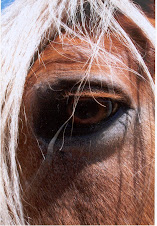As a newspaper reporter, I’ve been doing a series of stories about depression. I was reviewing a list of suggestions for getting through the holidays and came upon this line - Know when your holidays are.
Most of us would say the upcoming holidays are Christmas eve, Christmas day, New Year’s Eve and New Year’s Day. These are the most common times for family and friends to get together to celebrate ‘the holidays,’ depending on your personal spiritual beliefs.
When I read this line I realized it isn’t only the official day that can be a challenge.
For example, Christmas isn’t only Dec. 25. Christmas for some people has been going on for over a month already. Shopping for gifts, menu planning, traveling and decorating are also part of the holiday. For someone dealing with holiday depression, coping with shopping for gifts may be worse than the actual day with family.
What traditions do you have that give you a feeling of Christmas? Is it going to pick out a tree, or the first snowfall? If you used to do these activities with the loved one who is no longer present, how will it feel this year? What strategies can you put in place to deal with the feelings of loss or grief that may come up when you pass a Christmas tree lot?
A friend of mine told of breaking into tears whenever she passes her grandparent’s house this time of year. They’ve been gone for several years, but the memories of Christmas at grandma’s house are still vivid for her.
Personally, I think of Christmas whenever I pass an airport at night. When my niece was small, we would intentionally drive by the airport on Christmas eve so we could show her lights in the sky. She believed it was Santa Claus bringing his sleigh full of presents.
Another friend mentioned bringing out the Christmas music and thinking of special people associated with a particular song.
How about going through your list of people to send cards to? Will there be a hole left in your address book?
For someone dealing with depression, driving down the street at night and seeing houses lit up with colorful lights can be a trigger – knowing everyone else is celebrating and filled with the holiday spirit, while they can’t seem to bring themselves out of the dumps.
Know when you holidays are.
It’s not only good advice for those who need coping strategies. It can be good advice for those of us who are looking forward to the joy of the season.
Seeing a shopping adventure with your children as a holiday celebration in itself can make a difference in your experience. Instead of getting frustrated with the long lines and heavy traffic, we can remember to appreciate the experience as a Christmas memory to cherish when the children are grown.
Taking time to add a special note inside someone’s Christmas card could make their holiday and yours a little brighter. I’ve learned that people dealing with depression can be very good at hiding their symptoms. We may not know how important a smile or a card can be to someone this time of year.
Another suggestion was being intentional about holiday plans. What holiday traditions do you really enjoy, and what traditions are being done out of habit or obligation? If going to Aunt Mabel’s house for figgy pudding is something you enjoy, great. If it’s something you feel forced into, perhaps opening a conversation about alternatives could lead to a less stressful holiday. Wouldn’t it be good to know if Aunt Mabel doesn’t even like making figgy pudding, but she feels she has to keep up the ‘tradition’?
Knowing when your holidays are can bring an awareness to the magic in the small moments like hearing the ting of coins being dropped into the Salvation Army kettles, feeling the freshness of snow flakes melting on your cheek, or smelling the scent of balsam as you pass by the wreath on your door.
Adding celebration to these small moments, and seeing them as part of your holiday, can relieve stress and help us all remember why we celebrate this time of year.
Happy holidays.
Subscribe to:
Post Comments (Atom)





No comments:
Post a Comment